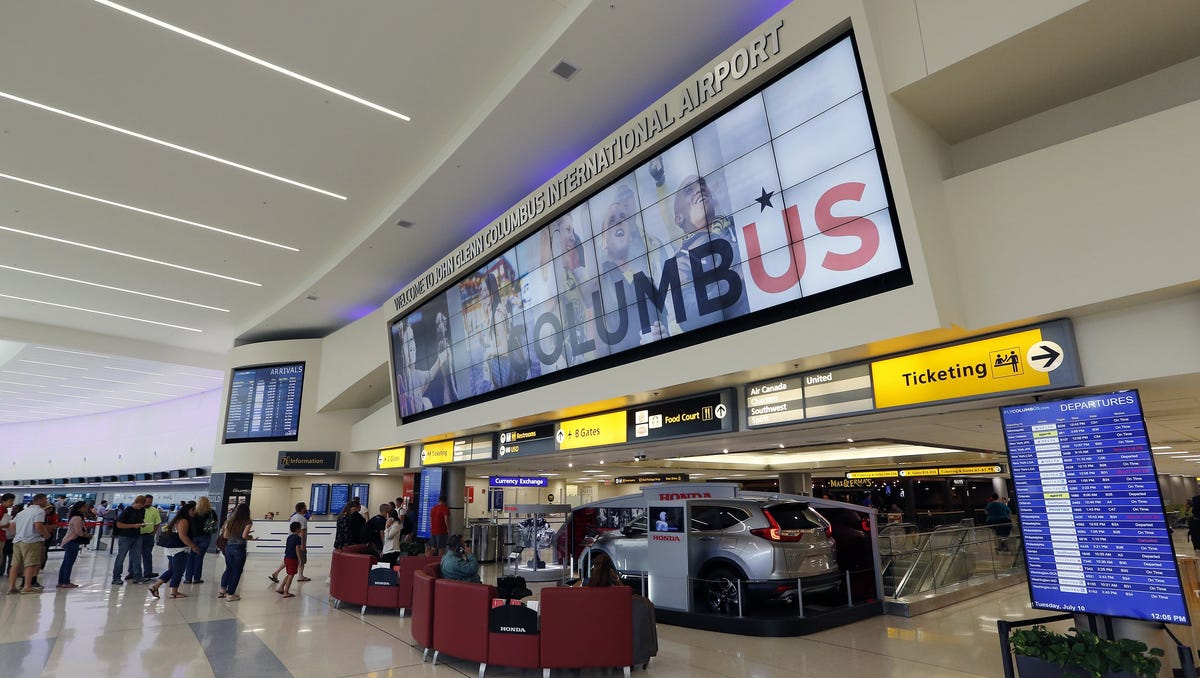Jobs
Manufacturing jobs in Chicago get a spotlight through a program for high school students

Among a group of about 40 students from Curie and Gage Park high schools, twin brothers John and James Kountz, 17, watched attentively as machinists and engineers worked on the factory floor of West Loop startup Drift Net.
The students were rapt as they watched workers use machines such as robotic arms, heat presses and water jets to make circuit boards, casings and other hardware for Drift Net’s security camera systems for schools.
“I want to work here. This is very interesting,” said John Kountz, who plans to study engineering in college. The brothers are both juniors on a STEM track at Curie in Archer Heights, near Midway airport.
After the tour, students listened to Drift Net founder Aaron Coles recount starting the company in 2018 when he was 19 years old. The horror of Parkland high school’s mass shooting that year in Florida compelled Coles to decline enrolling at MIT and begin making security technology designed for schools.
The factory visit was part of an initiative in October led by World Business Chicago, the city’s nonprofit economic development agency, to spotlight manufacturing in Chicago and jobs for the next generation.
In two field trips in October, more than 100 students from five high schools visited a diverse range of companies in Chicago that make everything from high-tech batteries to lab equipment to industrial seats. More than 35 educators and administrators from 30 Chicago Public Schools joined a third trip, also last month.
The students and educators visited 10 Chicago companies including Nanograf, maker of advanced lithium-ion batteries; 3D color printing factory Mass Persona; metal fabricator Laystrom; lab equipment supplier WaterSaver Faucet Co.; Freedman Seating, maker of seats for trains, buses and ferries; packaging maker Paket Corp.; workwear manufacturer National Safety Apparel; Labelmaster, maker of labels for hazardous materials, and Drift Net.
World Business Chicago partnered with trade association Illinois Manufacturing Excellence Center and the 10 local companies to tour their factories.
Students also came from Prosser Career Academy, North-Grand and Marshall Metro high schools on the Northwest and West sides, in addition to Curie and Gage Park.
“Our goal is to bridge the gap between students, educators and employers, showing the wealth of opportunity that exists in Chicago’s manufacturing sector,” said Tana Francellno, director of workforce at World Business Chicago. “Through these tours, we’re not just showcasing industry advancements, but building the pipeline of talent that will drive the future of manufacturing.”
Megan Hougard, Chicago Public School’s chief of college and career success, said, “These tours give students a firsthand look at how manufacturing continues to shape our economy, offering them a chance to connect with a part of Illinois’ history and potentially see themselves as part of its future.”
Boosting manufacturing in Chicago
Chicago’s manufacturing sector remains one of the largest in the nation, generating over $103 billion in output and employing more than 418,000 workers across 12,000 businesses in 2023, according to World Business Chicago.
But the sector has declined dramatically over the decades due to many reasons, including jobs moving overseas and automation. In 1960, manufacturing employed more than half a million workers in Chicago and accounted for more than one-third of jobs held by city residents, according to WBEZ. But by 2017, fewer than 9% were working in manufacturing.
Manufacturing jobs in Illinois dipped from 581,900 in December 2023 to 577,500 in August 2024, according to the U.S. Bureau of Labor Statistics. However, “manufacturing boomed at incredible levels at the tail end of the pandemic and into the time afterward,” said David Boulay, president of the Illinois Manufacturing Excellence Center. But he noted, “There’s been some softening in certain areas as interest rates went up.”
Finding workers is still a challenge especially as baby boomers retire and new manufacturing technologies require different training. This is a trend across the U.S., said Bouley, of IMEC. However, he said, “Illinois has one of the best talent pools on a range of skills and one of the largest community college systems in the nation.”
‘You have to fight every day’
At Drift Net, founder Coles told students, “Manufacturing can be overlooked and put down. But without these jobs and skilled labor, we don’t have anything.”
Coles also emphasized the importance of local manufacturing. Drift Net started making its hardware in China but the pandemic shut down production. The company nearly folded, but Coles bought small machines to make the equipment in Chicago.
“If someone else builds your product, they control your fate,” he told the students. Drift Net manufactures roughly 75% of its products at its West Loop facility.
Coles also cited the Midwest’s history as a manufacturing and engineering hub, though that has diminished over the years. “Bringing these jobs back to Chicago is important for the city and its future,” he said.
Students also heard from company executives about what it takes to make a business work. “Expect to fail. There are so many odds against you to be successful. You have to fight every day,” said Coles.
After the trip to Drift Net, students also toured the manufacturing facilities of Paket Corp. and National Safety Apparel.
Rachaed Washington, 16, said hearing Coles speak and trying out a heat press on its factory floor were highlights of the day.
“It will motivate me for when I start my business,” said Washington, who wants to start a T-shirt printing business after college.










